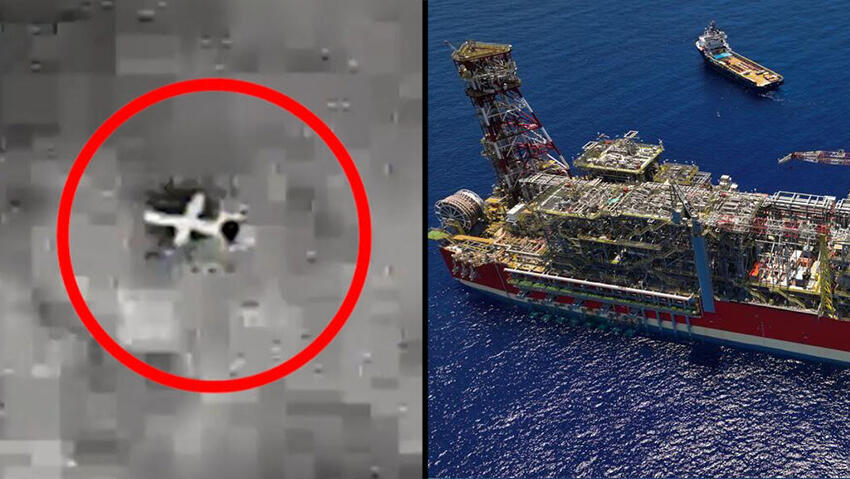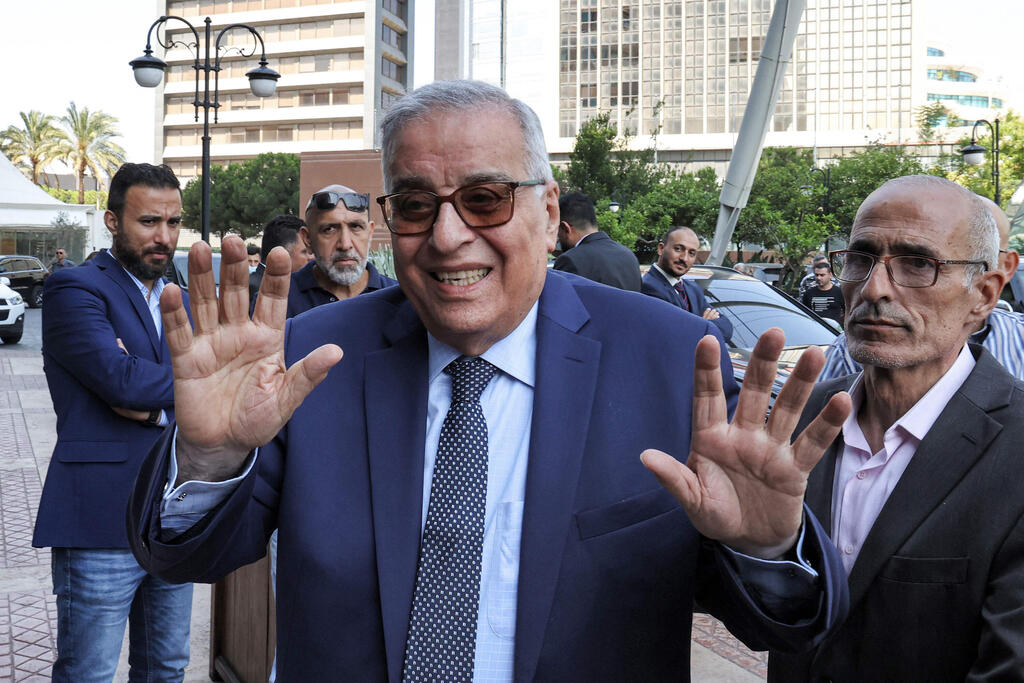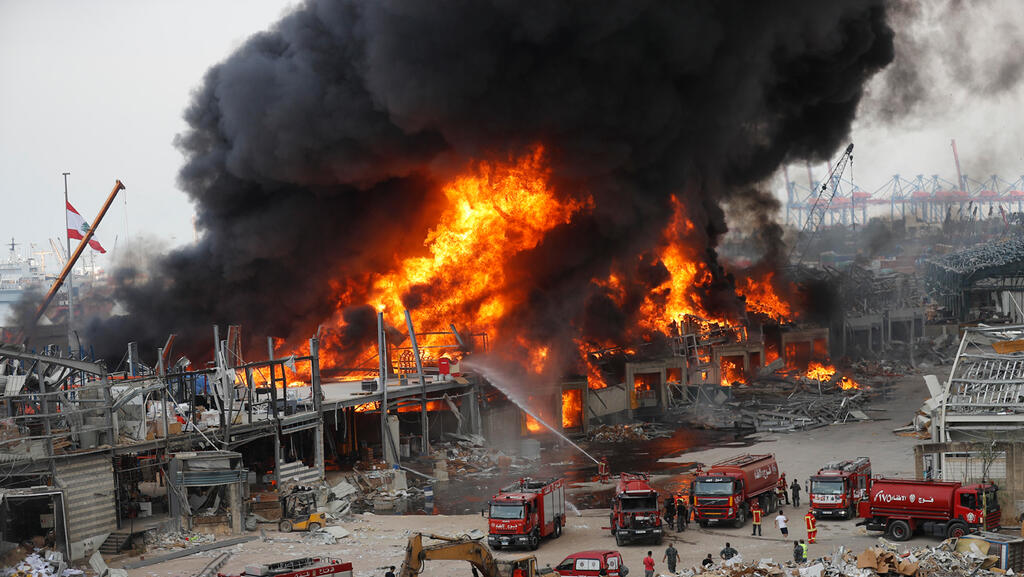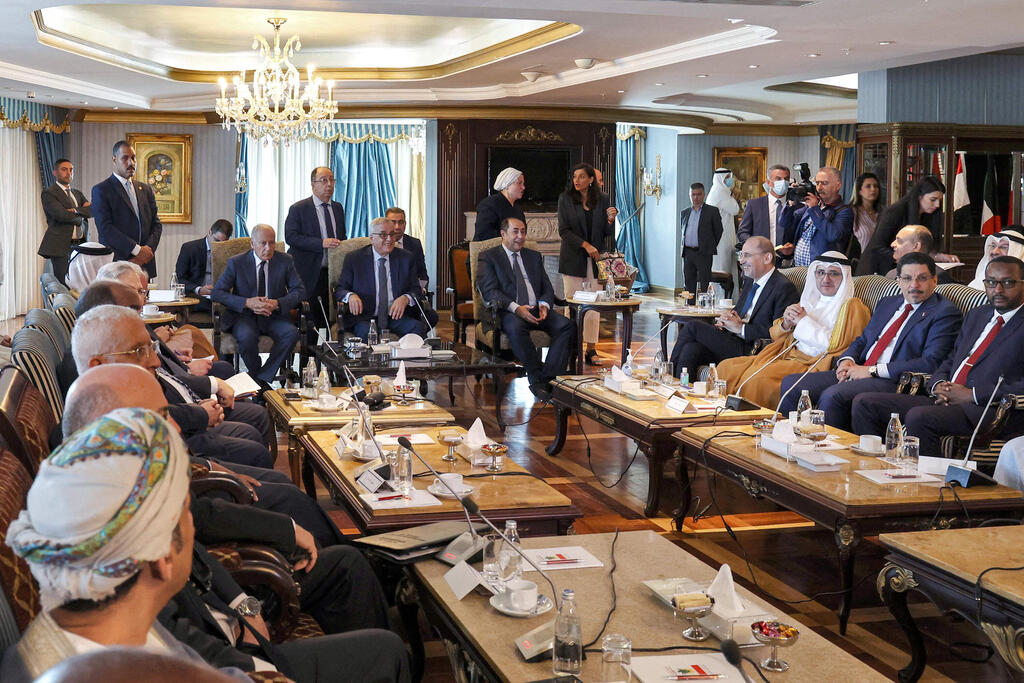We better take heed of Lebanese Foreign Minister Abdallah Bou Habib who succinctly summed up Saturday's drone incident around Israel's Karish gas field.
"I wish the confrontation between Hezbollah and the IDF wouldn't have happened," Habib said. "We are not interested in unnecessary conflicts. Lebanon is facing far greater problems."
He also broke out some interesting news: Israel and Lebanon are close to striking an agreement on the offshore gas fields along their shared maritime border.
He revealed that a senior UN representative and U.S. energy envoy Amos Hochstein were in the final stages of delineating borders that both parties are willing to accept. The outline is expected to be presented in September.
Saturday's incident exhibits the two states operating within Lebanon: One run by politicians and the military and the other run by Hezbollah under Iran's auspices.
Lebanese citizens are struggling way behind, most living in poverty and their suffering compounded by the 2020 Beirut Port explosion that killed dozens and wounded many more.
4 View gallery


Hezbollah drone shot down by IDF; Karish gas field
(Photo: IDF Spokesperson's Unit, Energean)
Behind them trudge the civilians, most of them living in poverty and their suffering has only compounded since the horrific 2020 Beirut Port blast.
It did not only kill hundreds, wound many more and prompt an exodus of Lebanon's young out of the country. Rather, it highlighted the glaring gap between civil Lebanon and Hezbollah's Lebanon, backed by Iran's mullah regime.
Two other cabinet ministers, who asked to remain anonymous, also excoriated Hezbollah for its conduct around Saturday's provocation around the Israeli gas rig.
Meanwhile, the group's leader Hassan Nasrallah tried to placate politicians in Beirut by stating that the three aircraft Hezbollah launched were unarmed and were on a "reconnaissance mission over a disputed area", a mission he declared a success.
But reality tells a different story. Israel destroyed Hezbollah's drones, which obviously did not stop Nasrallah from naming this latest mission after the group's first aviator Jamil Skaf who was killed on his way to a suicide mission over Israel 15 years ago.
The circumstances of his death were kept under wraps until the Hezbollah secretary-general's posthumous gesture.
U.S. special envoy Amos Hochstein had been working with senior military and civilian representatives of Lebanon, assisted by American Ambassador Dorothy Shia.
Hezbollah has been ignored by all participants in the talks or seen as no more than a nuisance. In a meeting held over the weekend, representatives of 21 Arab League member states, excluding Syria which has been kicked out due to the ongoing civil war in the country, were quick to state their support for Lebanon's position.
But the question remains what exactly is that position and who is leading it — the Lebanese state or Iranian-backed Hzebollah?
A member of the Lebanese parliament compounded criticism on Hezbollah articulating that Hezbollah's actions were unacceptable since Lebanon had greater problems than the conflict with Israel.
"Hezbollah's actions harm Lebanese sovereignty first and foremost. I wish Hezbollah hadn't send the aircraft," said Ghyath Yazbek. "What would we achieve from it?"
Hezbollah celebrated what they called a victory by posting the IDF clip of the downing of UAVs, repeatedly on social media.
IDF footage of Hezbollah drones shot down over Karish gas field on Saturday
(Video: IDF Spokesperson's Unit)
And if there were any doubts about Nasrallah's victory cry, the IDF's video of the downing of the drones was shared repeatedly on social media in Beirut.
Meanwhile, two acquaintances of mine in Beirut have asked me whether Defense Minister Benny Gantz's offer from last year to supply Lebanon with food for its needy population still stands.
I did not know what to reply, so I hereby convey their plea to Israeli leaders.






